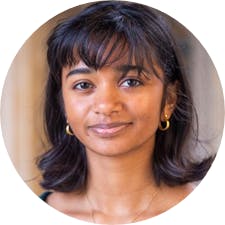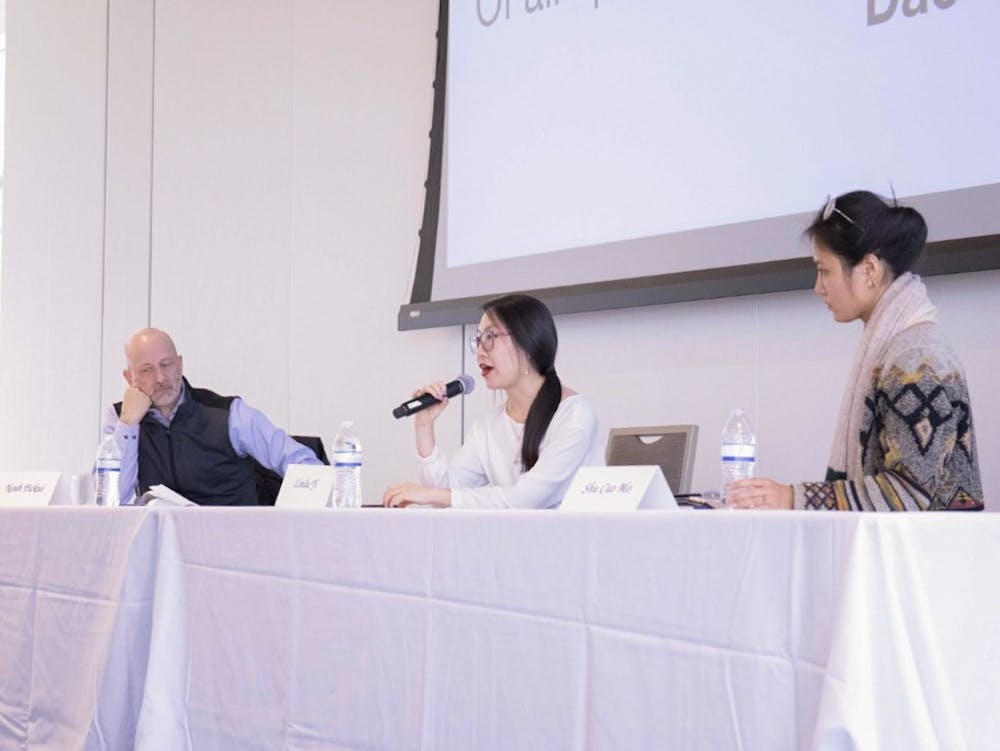As part of Saturday’s Duke China-U.S. Summit, three educators came together to discuss education and academia in the U.S. and China.
Bringing together their diverse backgrounds, spanning immigration policy work, books for bilingual children and working on social innovation projects in China, their conversation focused on the value of the humanities, the value of interdisciplinary and cross cultural learning and how to effectively implement these values into curriculum.
Noah Pickus, associate provost of Duke and dean of undergraduate curricular affairs and faculty development at Duke Kunshan University, has been one of the designers for the curriculum at DKU. He described the curriculum at Duke’s sister university in China.
“We don’t want to think of DKU as ‘Ok, here’s the western model. Let’s just import it,'” Pickus said.
To him, the curriculum of DKU represents something familiar, yet different.
“It is meant to embody a number of elements of the Duke curriculum, but also to blend them with Chinese, European and other experiences to create something different in form and scope,” he said, describing the result as something that attempts to be more innovative and integrative where possible.
This is enacted in a multitude of ways, amongst which is the way in which the curriculum is scaled vertically, meaning students take a class on “China and the World” in their first year, “Global Challenges” in their second year and “Ethics and Citizenship” in their third year.
This is meant to continue conversations from one year to the next, instead of a model which only prioritizes these discussions among first-years.
“Breadth is equal to specialization, precisely so that students can, every year, reencounter each other,” Pickus said. “If you’re only in a common conversation in your first year, all the growth and development is lost.”
Pickus cited broad majors as another component of innovative learning at DKU.
“Students end up majoring in broad areas, like Computation and Design or Behavioral Science, or Global China Studies, which work across the curriculum, so every student has both a breadth within their major and you will also then have a track where you gain your depth of expertise,” he said. “Expertise is crucial, but only if it is also married with the kind of breath and flexibility and agility that you get the true creativity that is necessary.”
Linda Yi, a Brooklyn-based writer, illustrator and creator of the webcomic PandaCubStories, spoke to the way in which current language learning is flawed.
“Stories have always been a part of children’s language education and development, especially very young children,” Yi said. However, she discussed how this form of education is switched out for a top-down approach as we age, a system that encourages learners to memorize vocabulary and grammatical rules.
“The problem with this model is that learners often lose motivation and quit,” Yi said.
Her comic, centered around learning the Chinese language through context and stories, mimics the way in which children learn language. She showed a sample comic on the screen and asked an audience member to interpret the meaning of a character.
Eventually, students are able to read “leveled stories,” which incorporate several characters mastered from previous comics, with the story-based approach strengthening mental associations.
Shu Cao Mo, director of education for TalentsJoin Global LLC and previously regional manager to East Asia and Oceania for Minerva Schools, spoke to the deep connections that run between art and science, citing the beauty in fractals, the golden ratio and the beauty of the universe.
But she expressed discontent with how little is done to bridge the two disciplines.
“We get so siloed in our own jargons and lingos,” she said. “There’s very little collaboration, which can be a very difficult movement, for us to move sciences forwards and art forward.”
The panelists raved about the value of the humanities.
Get The Chronicle straight to your inbox
Sign up for our weekly newsletter. Cancel at any time.
“What often happens at Duke and other western universities is that students decide they have a career major, a money major and a fun major. There’s the major that their parents want them to do, or that they feel they need to do, and then there’s the thing that actually they’re passionate about doing,” Pickus said, suggesting the broad majors at DKU may counter this phenomenon.
Shu Cao offered a personal anecdote, citing her feeling that she feels, in the age of automation, an acceleration of time.
“There is oftentimes a sense of urgency or desperation that if I am taking a humanities class, I am missing out on the next tool,” she said.
However, she framed the tools learned in humanities classes, namely communication and collaboration, as equally important, citing the example of the social relationships between engineers.
Yi agreed with the others.
“Developing engaged and informed global citizens is what we want to do,” she said. “The province of the arts is the province of stories”.

Preetha Ramachandran is a Trinity senior and diversity, equity and inclusion coordinator for The Chronicle's 118th volume. She was previously senior editor for Volume 117.

